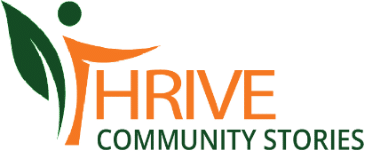Diversity and equity are key aspects of the Amputee Coalition’s mission. To fully represent the limb loss and limb difference community, it requires targeted and deliberate action to ensure we are inclusive of the diverse backgrounds within our community. As such, the Government Relations team works to make our voice heard on issues that impact all community members, including those from underrepresented groups.
What We Know
We know from existing research that the risk for limb loss is not the same for all individuals. People of color experience a higher risk of limb loss due to unequal access and treatment in society, even within the medical system. Members of the Black American community are four times more likely to experience limb loss than White Americans.1
Black Americans are two times more likely to experience diabetes related amputations. Hispanic and Latino Americans are one and half times more likely to experience limb loss.2 Indigenous Americans experience limb loss up to seventy percent more than White Americans.3
What We Are Doing
The disproportionate impact of limb loss on communities of color is alarming. We are taking action to ensure that we engage communities of color as we work to uphold the organization’s tenets that “no amputee is alone” and “life is lived well with limb loss.” The Amputee Coalition runs the National Limb Loss Resource Center as part of a cooperative agreement with the Administration of Community Living to provide services, such as our peer support program and educational resources to help our community and their loved ones thrive with limb loss.
The Government Relations team works to build strong relations with communities of color. This year, we revamped the All-Advocate Calls to celebrate cultural awareness months. All Advocate Calls are open to the public to learn about the Amputee Coalition’s advocacy efforts and to hear from experts on a variety of issues.
This past February, we hosted an All-Advocate Call that celebrated Black History Month and American Heart Month by featuring Dr. Foluso Fakorede as our guest speaker. Our next All-Advocate Call will celebrate Mental Health Awareness Month by featuring another dynamic guest speaker.
In the words of the late Supreme Court Justice Ruth Bader Ginsburg, “We will all profit from a more diverse, inclusive society, understanding, accommodating, even celebrating our differences, while pulling together for the common good.”
A Brief Report of the Dartmouth Atlas Project.” Robert Wood Johnson Foundation, 2008.
(2) Bancks MP, Kershaw K, Carson AP, Gordon-Larsen P, Schreiner PJ & Carnethon MR. (2017). Association of
modifiable risk factors in young adulthood with racial disparity in incident type 2 diabetes during middle adulthood. Jama, 318(24), 2457-2465. doi:10.1001/ jama.2017.19546
(3) Li Y, Burrows NR, Gregg EW, Albright A, Geiss LS. “Declining Rates of Hospitalization for Nontraumatic Lower-Extremity Amputation in the Diabetic Population Aged 40 Years or Older: U.S., 1988–2008.” Diabetes Care February 1, 2012;35(2):273-7. doi.org/10.2337/dc11- 1360

